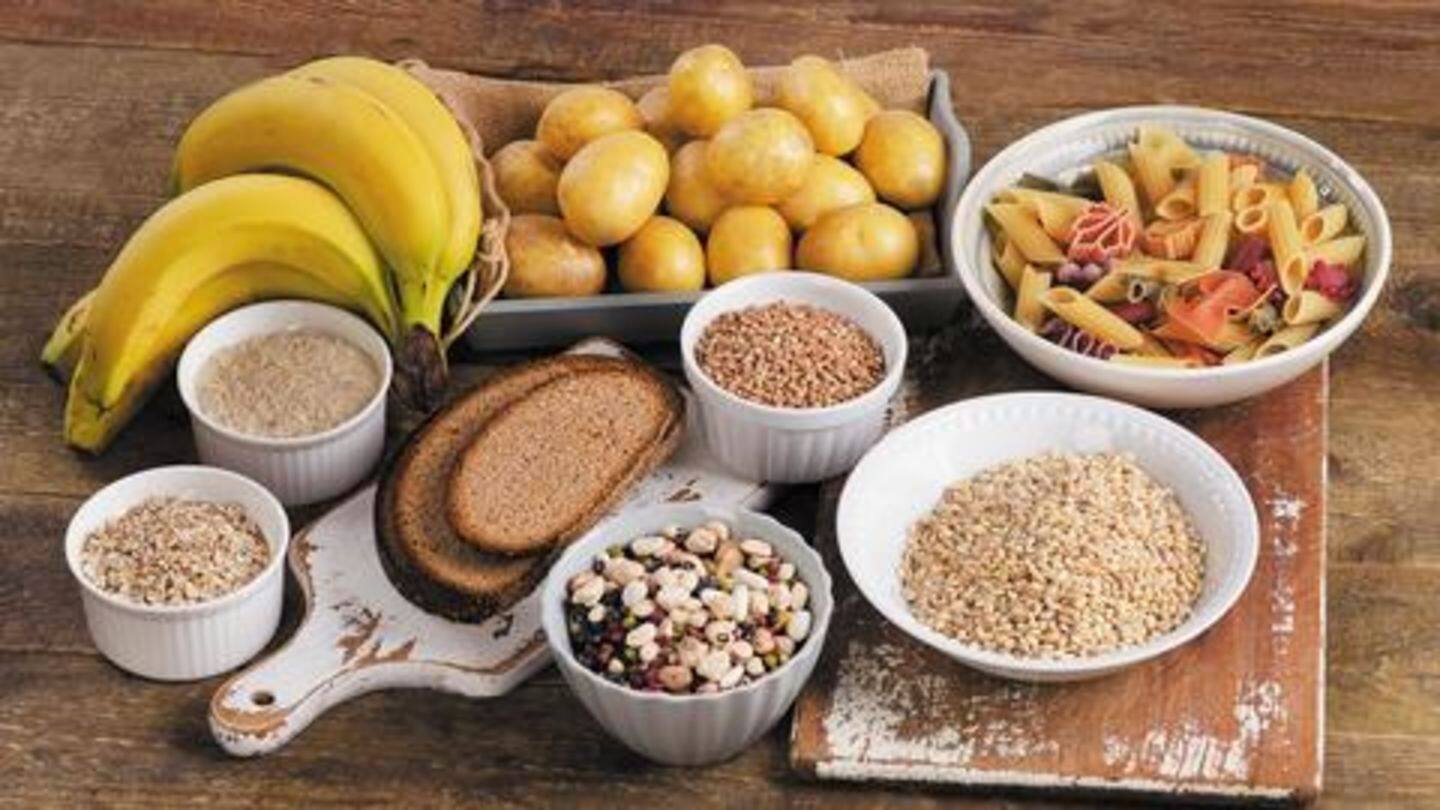
Five myths about carbohydrates, busted!
What's the story
When you are trying to lose weight, you are bound to get confronted with wildly varying opinions and advices about carbohydrates. Should you eat less of it? Or more? Or just completely let go of it? There is just too much confusion. Well, the answer lies in balance. Here, we bust five common myths about carbohydrates.
#1
Myth: Carbs are fattening
Carbs get a bad rep as they are believed to be fattening. In fact, it's not the carbs themselves, but their type and quantity that could be the culprit. Refined carbs like desserts, white bread, rice and pasta are known to cause weight gain. To promote shedding fat, a general rule of thumb is to limit your carb intake to one cup per meal.
#2
Myth: All carbs are the same
All carbs aren't created equal. Different types of carbs break down sugar at different paces, depending on their fiber content. You need to cut out on processed goods, baked items, sugary drinks, sweets, as they all contain empty calories. Instead, go for healthier choices like whole-grains (whole-wheat bread, brown rice), starchy veggies (potatoes, sweet potatoes, corn), and fresh fruit, as they contain more fiber.
#3
Myth: Low-carb diets are healthier
Just by cutting out carbs from your diet won't make it healthier. In fact, carbs provide energy to the body, and not consuming enough can make you feel sluggish or even invite signs of low blood-sugar. Healthy, carb-rich foods provide essential nutrients like fiber, Vitamin B, iron, and folate. It ultimately boils down to finding the right balance of carbs in your diet.
#4
Myth: All white foods are unhealthy, should be avoided
Although it is true that white foods such as processed grains and sweets may lead to inflammation, other carb-rich foods, often considered "white" could actually be essential for good health, as they contain plenty of phytonutrients, are rich in antioxidants and boost immunity. Some nutrient-rich white foods are cauliflower, potatoes, onions and garlic, beans, and apples.
#5
Myth: Fruits are bad as they are high in carbs
People often complain that fruits have too much sugar. But, that needs some correction. In addition to natural sugar (fructose), fruit supplies nutrients like fiber, vitamins, minerals, and phytonutrients. One just has to be mindful of the portion they take. It is recommended to consume fresh/frozen fruit in limited quantities. Also, avoid fruit juice, as it contains more fructose, but lacks enough fiber.